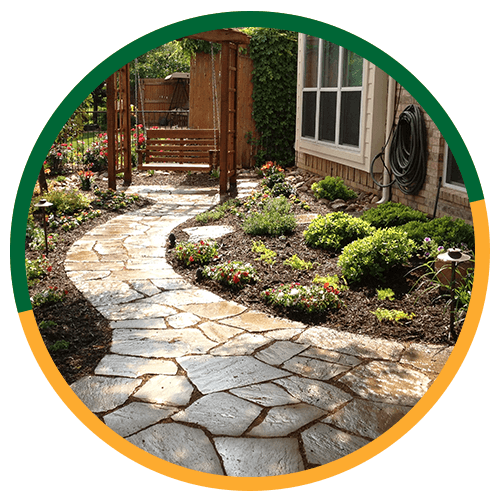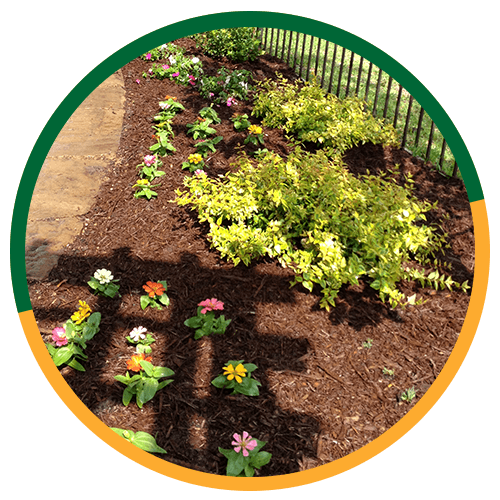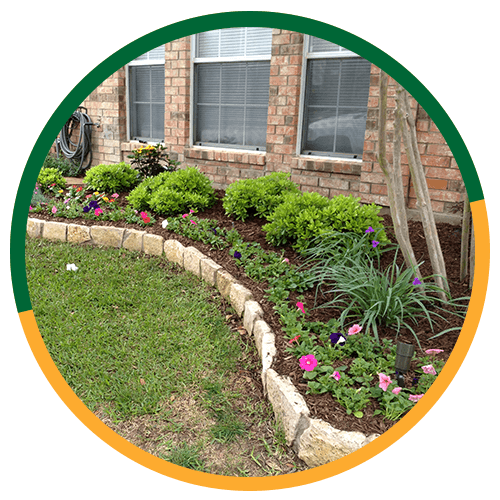Some maintenance tasks require devotion to a regular routine during the blooming season to keep your flowers looking good. Other chores — such as getting the flower bed ready for winter — are seasonal. You’ll be pleasantly surprised to find that flowers require much less attention than grass. As part of this attention, Amazing Lawn Care recommends mulching for customers looking to complete their beautiful yard. Proper garden and landscape care require something extra, mulch, to give your yard a much needed boost. Applying mulch is one of the best things you can do for your flower and plant beds, trees and vegetable garden.
Mulch is a layer of organic or inorganic material that is spread out on top of the soil to protect against erosion and conserve moisture. Both organic and inorganic mulches have many benefits, although organic mulch actually enriches the soil. Mulch helps plants maintain a more even soil temperature and prevents weed growth to reduce garden maintenance.
Not Too Much! As beneficial as mulch is, too much can be harmful. The generally recommended mulching depth is 2 to 4 inches (5 to 10 cm). Unfortunately, many landscapes are falling victim to a plague of overmulching. “Mulch volcanoes” are excessive piles of mulch materials applied around the base of trees. While organic mulches must be replenished over time, buildup can occur if reapplication outpaces decomposition or if new material is added simply to refresh color. Deep mulch can be effective in suppressing weeds and reducing maintenance, but it often causes additional problems, such as:
- On wet soils, deep mulch can lead to excess moisture in the root zone, which can stress the plant and cause root rot.
- Piling mulch against the trunk or stems of plants can stress stem tissues and may lead to the development of insect and disease problems or stem girdling roots.
- Some mulches, especially those containing fresh grass clippings, can affect soil pH and may eventually lead to nutrient deficiencies or toxic buildups.
- Mulch piled high against the trunks of young trees may create habitats for rodents that chew the bark and can girdle the trees.
- Thick blankets of fine mulch can become matted and may reduce the penetration of water and air.
- Anaerobic “sour” mulch may give off pungent odors, and the alcohols and organic acids that build up may be toxic to young plants.
At Amazing Lawn Care. we’ll remove the weeds, leaves, and debris that have gathered over the course of the season before we lay the mulch. We offer all varieties and can supply you with all your complete mulching needs based on your personal preference.



